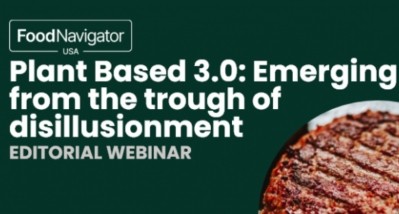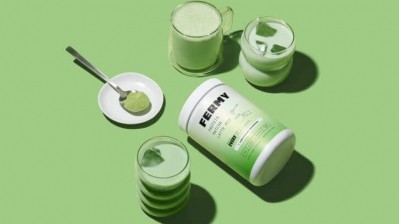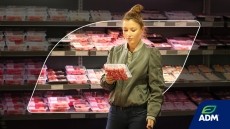Future Food-Tech
Moving beyond nuggets, burgers: How alt protein can capitalize on areas of whitespace innovation

“[The alternative-protein market] is a crowded, competitive market of which I would say both grocers and consumers are a little tired of what the offering looks like, and I think maybe a little disappointed broadly speaking with some of the offerings that [are] out there. I do not think there is a lack — and we have heard this from groceries as you talk to them directly — of interest from consumers. I think there is a lack of offerings meeting consumers’ needs. And so, in my mind, I think that is the gap that needs to be filled. And until then, I think you are going to see this dynamic of somewhat softness in the market because the current offerings do not meet that demand,” Rashid said.
Editor’s note: Looking for more insight into the future of the alternative proteins market? Then, make sure to attend the Future Food-Tech Alternative Proteins summit in Chicago, June 17-18. On the first day, the "Future-Proofing the Alt Proteins Sector: What has Gone Wrong and What Lies Ahead?" will discuss overcoming market challenges to grow in the market. Visit the event website here to learn more and click here to register.
Alt-protein products ‘did not meet the whole needs of the consumer’
During its hype cycle in the early 2020s, alt-protein companies ended up creating a lot of similar products — including burgers, nuggets and grounds — that “were not particularly differentiated," Rashid explained.
“The products did not meet the whole needs of the consumer, in the sense, that it may meet someone's perspective on sustainability, but not necessarily nutrition or taste. ... Someone who is looking to tick a couple of different boxes [on] nutrition, taste, better-for-you and better for the world maybe could not find a product that meets all of those needs,” Rashid said.
She added, “The offerings... were very similar and did not have enough of a broadness for the utilization of how people think about the substitution of meat in their daily lives.”
Echoing the point, Jamie Valenti-Jordan, CEO of Catapult Commercialization Services, told FoodNaviagtor-USA that “one of the things that alt-protein in general suffers from is a lack of versatility” when it comes to the products and its uses.
The next generation of alt-products should "build more specific or maybe even more generalized versatile proteins" that do not require the same level of product formulation to release a finished product on the market, Valenti-Jordan explained.
“A lot of alt proteins still have to be dressed up from a flavor perspective or from a fat and mouth-coating perspective, and ... we are using a lot of starches and things like that. If we can build more robust protein systems that are able to work within that space — meaning able to hold the fat in place - ... then we should be able to see more versatile proteins as well as those applications [that] we cannot get today for a reasonable cost for things like cut-textured meat,” Valenti-Jordan said.
Are hybrid products part of the next wave of alt-protein innovation?
The alt-protein market can cater to more consumer needs by expanding its breakfast and deli-meat offerings and chef cuts and blocks in foodservice, Rashid explained.
This year, Israeli-based food tech company Yo Egg launched its plant-based sunny-side-up egg in the US. Additionally, seaweed-based bacon company Umaro Foods will launch in a major retailer this year, supported by $3.8 million in recent financing.
Additionally, hybrid alt-protein- and animal-based products can provide an option for flexitarians who want to partake in the category but do not want to give up animal-based entirely, Rashid said. Food-tech company SCiFI Foods — which recently completed its first commercial-scale production run — is creating a cell-cultivated beef to be used in a 90% animal-based and 10% alternative-protein-based burger.
With these new products and more to come, the alternative protein industry is reshaping the contours of what is and is not in the industry, as the category moves beyond its initial vegetarian roots to embrace cell cultivation and other novel approaches to creating proteins, Rashid explained.
“I do not think it is so much who is in and who is out but more how do we redefine this category for what is a broad base of consumers who utilize and eat non-meat products in a different way today,” Rashid said.





















